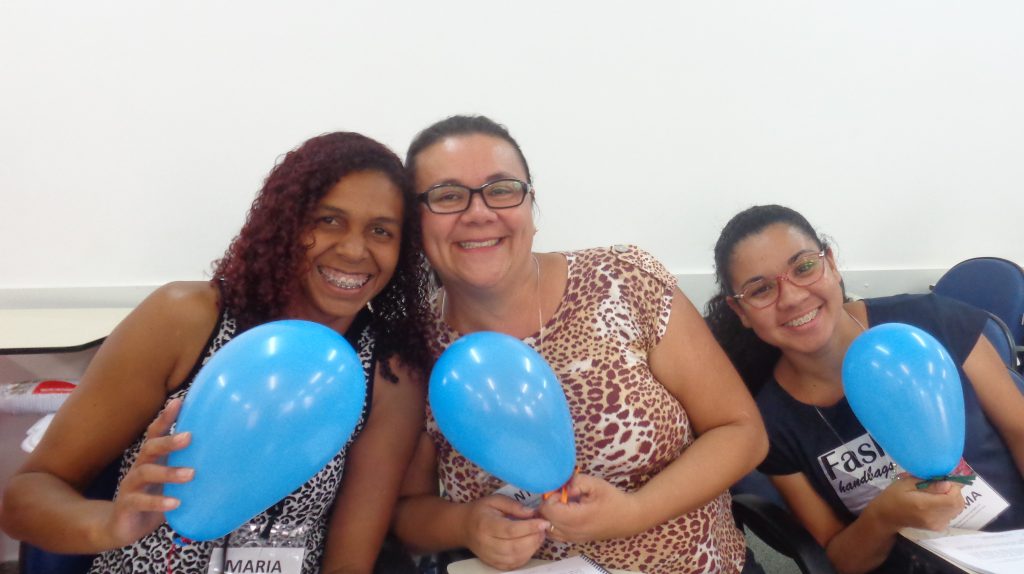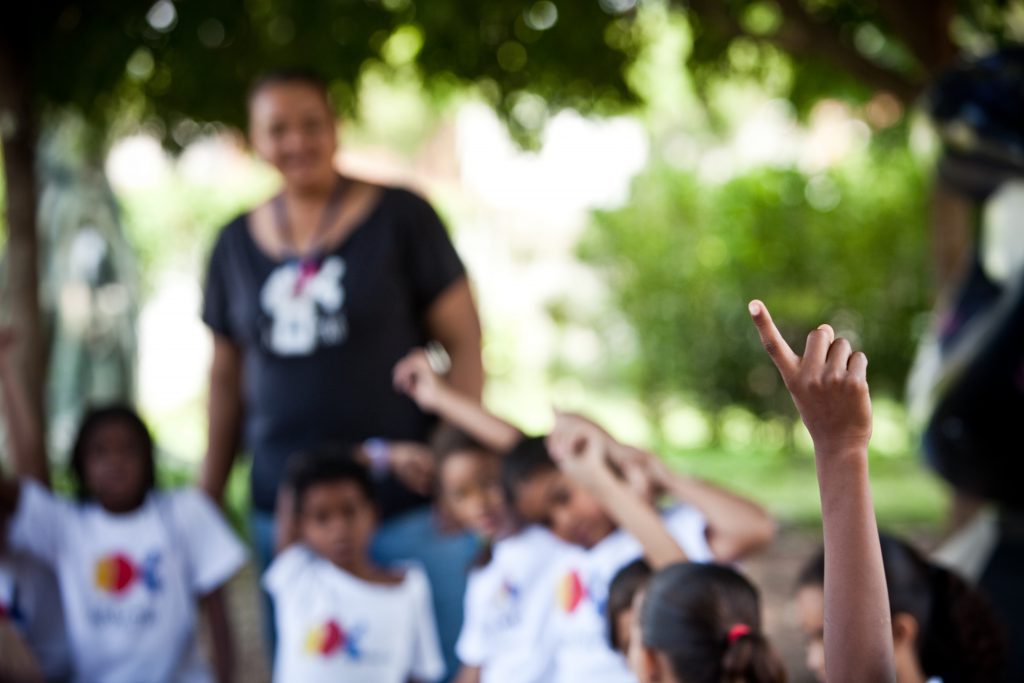
This month we commemorate Teacher’s Day (October 15), and our highlight is on educators who dedicate their lives to teaching the most diverse subjects to millions of students all over Brazil. Education for health is one of these subjects. It is thanks to the work of over 1,500 educators, who participate every year in our certification courses that we were able to transmit more information and knowledge to children, adolescents and their families. We work together with these professionals to ensure that an increasing number of people are able to write their life stories with higher quality.
As important action certified instructors from the Criança é Vida (Child is Life) Institute and essential for the development of any country, Brazil’s teachers, besides teaching, also have to overcome many problems. According to data released by the Lemman Foundation, a large number of the 2.2 million teachers still lack appropriate education for the subject they teach – only 56% of math teachers for the final years of elementary school are adequately prepared in this area, in other words, a little over half.
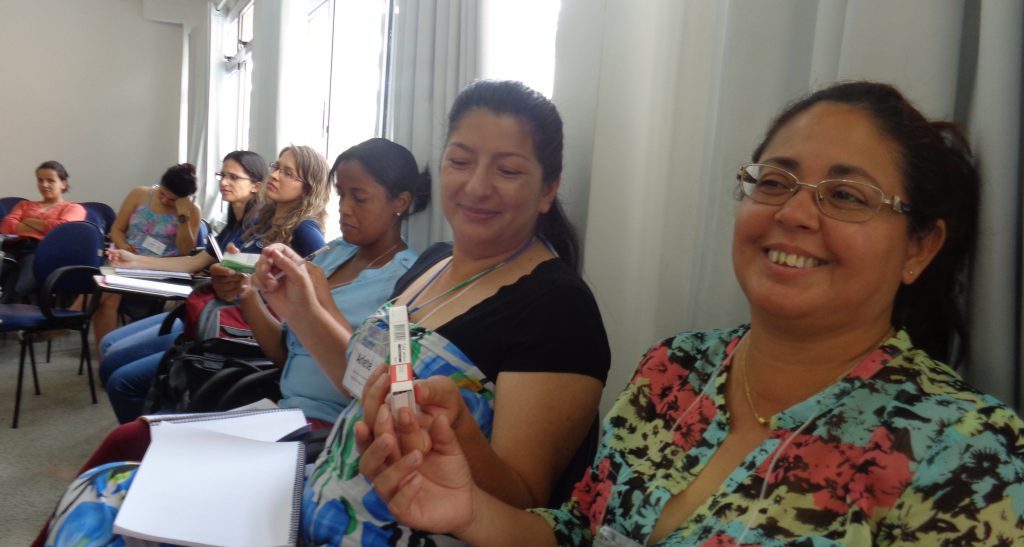
An initiative to ensure better qualifications is the teachers’ certification course program launched by the Ministry of Education (MEC) in October. In addition to facilitating professionals’ access to new courses, the program aims to offer 80,000 scholarships so that teacher certification students can take supervised internships in schools even before graduating. Teachers who have already completed their undergraduate degrees will be able to take a second teacher certification course with scholarships from the ProUni (a Ministry of Education program that offers scholarships to private institutions of higher education), without the need to qualify based on income.
Children: The Best Investment
If encouraging the higher education of our teachers is important, investing in education of 0-to-6-year-old children is essential to change a country. This is the opinion of economist and Nobel Prize winner James Heckman, who participated in an event on education in early childhood education, in São Paulo in September, organized by VEJA and EXAME magazines. In his set of actions to combat inequality is awareness work with parents with information on the importance of encouraging child development. For Heckman, such initiatives are more efficient than income distribution policies.
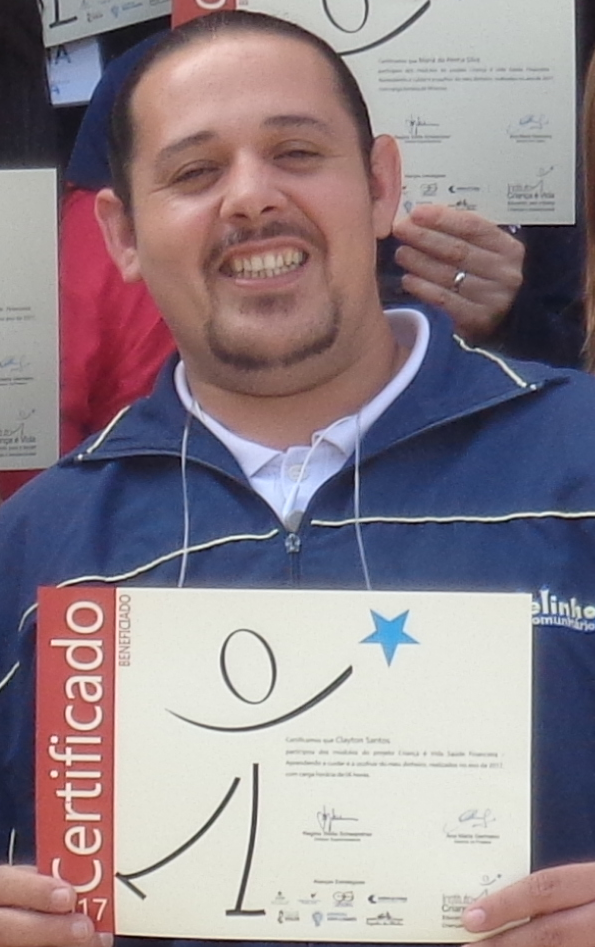
Providing information to children, adolescents and families is what educator Clayton Santos does every day. When he was a boy his dream was to be a bus driver or a military officer. Today, he says he was born to be a teacher. His first contact with education was while he was still young, when he acted as a volunteer in a social organization. “There I took courses on recreation and leadership management, which helped me to grow as a person, and I started working in children recreation. I grew to love working with children,” he says. At 32 years of age, with a degree in Pedagogy, Clayton has worked over the last nine years as a social and recreation guidance counsellor at the Castelinho Community Center, which assists 180 children and adolescents aged 12-14 years, in Interlagos, on the south side of São Paulo.
The Institute in Practice
Based on the certification courses of the Criança é Vida (Child is Life) Institute, educators develop different activities related to themes like sexuality and financial health, in addition to other work in the areas of drug prevention, hygiene, leisure and recreation. In addition to promoting knowledge, Clayton is also active in the certification courses of new “certified instructors.” “I play games with the students, which they learn and teach to groups of younger children,” he says.
“The institute’s work is important for my growth as a certified instructor. I acquire information in the courses, which I can provide to adolescents with the help of booklets. They contain very rich, dynamic material, with images and language that adolescents can understand. In this fun way it is possible to achieve our goals not only with adolescents, but with students of all age groups.”
Clayton Santos
For educator Maria Luciana Bernardes, 44, who has been teaching for 5 years at the Mogicruzense Association for the Defense of Children and Adolescents (AMDEM), in Mogi das Cruzes, “the institute’s projects complement the workshops we already attended.” The social guidance counsellor is responsible for implementing projects and workshops focused on such themes as violence, violation of rights, family and community and citizenship.
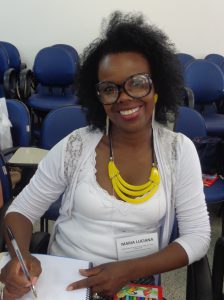
With a degree in Pedagogy, Luciana participated in the Growing Up with Values and Sex Education projects in 2017, both for the 10-to-12-year-old age group, and has already noticed the affect of incorporating the Criança é Vida (Child is Life) Institute’s projects into children’s everyday routines. “In the case of values, a theme that has already been dealt with here, the results were clearly seen in children’s speech, with them using expressions such as ‘thank you very much’ and ‘please,’” the educator says.
“The teaching method used in projects and activities proposed by the Criança é Vida (Child is Life) Institute is very clear and easy to implement. This helps our work a lot.”
Maria Luciana Bernardes
Long-run transformation
For Clayton Santos, the transformation that knowledge generates in adolescent behavior in general is only noticed in the long run. According to him, it is when young people mature a bit that they begin to express what they have learned. “Many adolescents who left the organization when they were 15 come back to see us again and report on sex issues they had to deal with and found a solution to,” he says. For Clayton, this is the most valuable reward the profession offers. “It is more important than what I earn,” he adds.
“Being able to help adolescents and children strive for their dreams and achievements is my greatest reward in being a teacher”
Clayton Santos
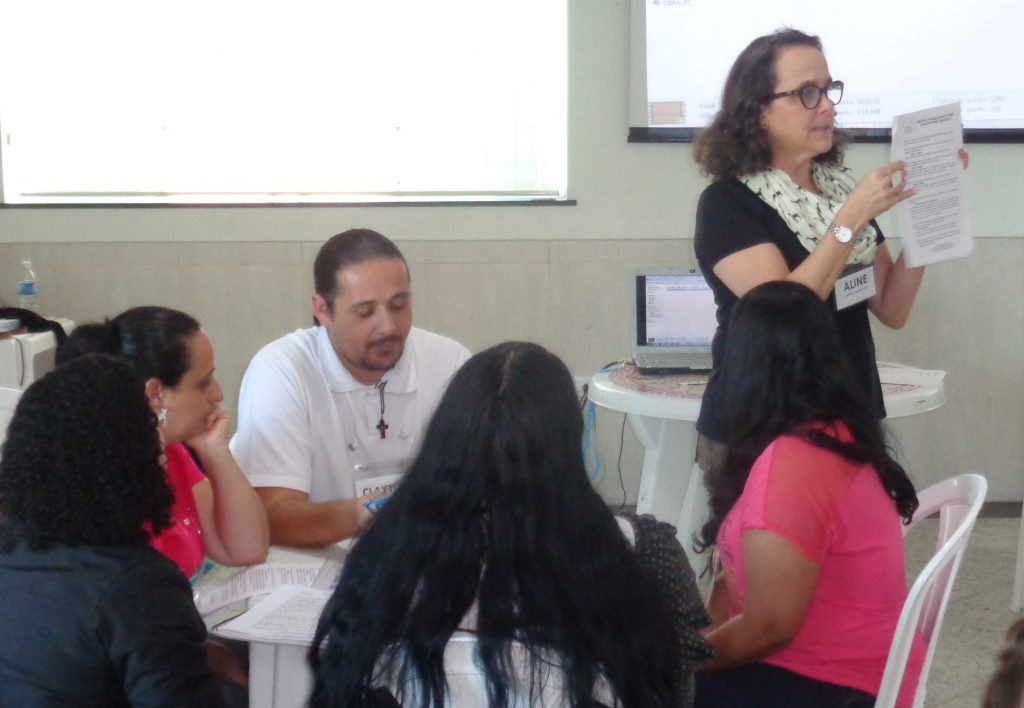
For Maria Luciana, the value of being an educator goes far beyond the financial aspect. “It is rewarding to know that the knowledge provided to children is absorbed and reflected in their speech,” she explains. For her, the positive impact the work also has on families is another reason for satisfaction. “Every day we see both families and children improving,” she commemorates.
In addition to personal gratification, educator Clayton believes that teachers in Brazil still need to earn better pay. And he is right. According to a survey by the Organization for Economic Cooperation and Development (OECD), “A Look at Education,” released in 2016, teachers’ pay in public elementary and secondary schools in Brazil (US$12.3 thousand per year or nearly R$40 thousand) is less than half the average of the 35 countries surveyed and is below Latin American countries like Chile, Colombia and Mexico.
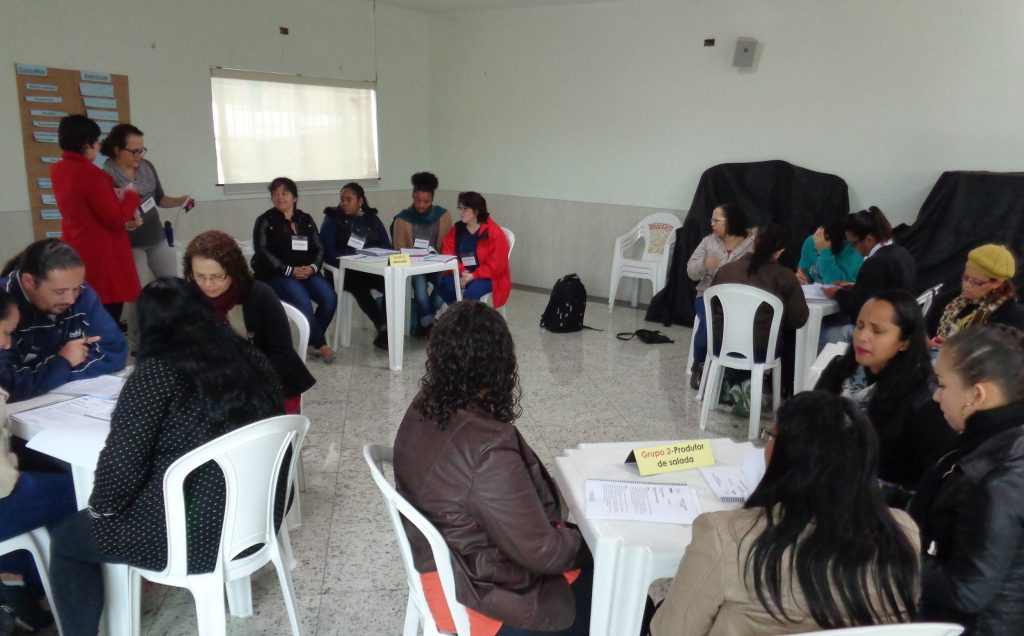
In practice, low teacher salaries also undermine teacher certification courses. This is what educator Maria Luciana says, a specialist in special education and in psychopedagogy. “The teacher is a professional who needs to undergo continuous training, renewing himself/herself and studying. But he/she doesn’t earn enough for that,” she complains.
Clayton also warns about physical and verbal violence that many teachers face in today’s classroom and highlights the need to restore teacher respect. “My mother always said: Your teacher is one of the family. You have to respect him/her because he/she is there to teach you so that you can gain knowledge,” he recalls.
Maria Luciana’s main reference to becoming an educator also comes from childhood. Even after having worked in other areas, such as nursing, and although she was unemployed at the time, she didn’t give up on studying Pedagogy. “My childhood teachers brought me to the classroom.” Especially a History teacher called Joana D’Arc. “She travelled all over the world and sent us postcards saying: ‘Close your eyes and imagine you are here with me.’ People like her made me want to be a teacher,” she says.
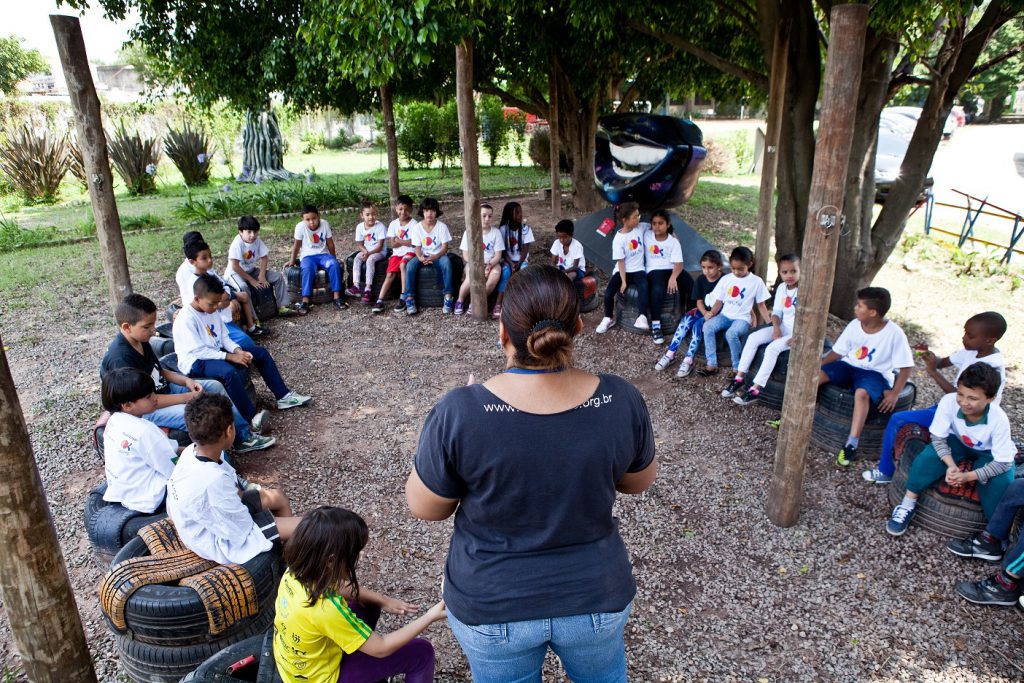
The little appreciation, lack of respect, inappropriate remuneration, and even lack of interest of some students in learning, do not destroy the motivation of professionals like Clayton. “The teacher wakes up every day and goes to teach classes with enthusiasm and joy in teaching because he/she knows that at least 10 of those 40 students in a classroom really pay attention to what he/she says and are going to have a bright future,” says the educator who dreams to one day found his own social organization.
Hopefully, teachers like Clayton and Maria Luciana will continue to be good examples of professionals committed to and loving what they do, and will never lose the ability to imagine, dream and build, through education, a better Brazil for all our children. Congratulations to all our country’s teachers!
